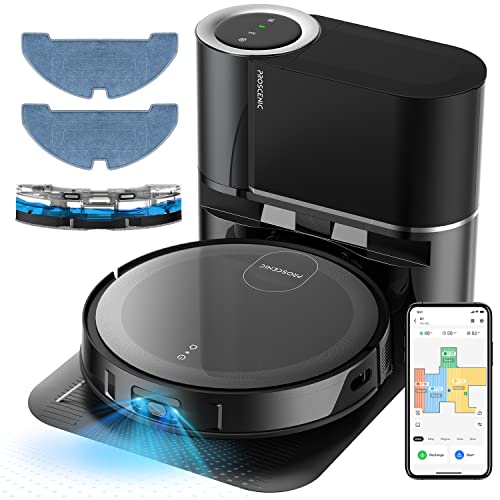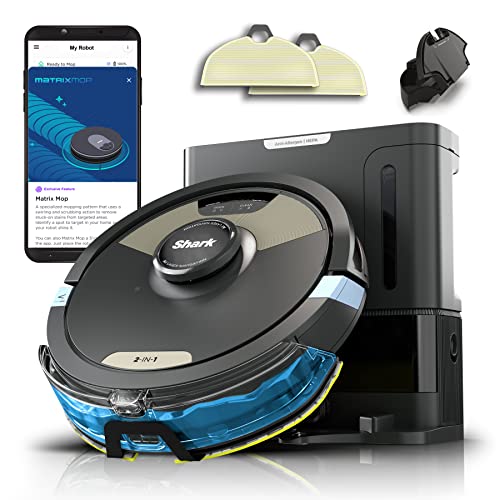11 Strategies To Completely Redesign Your Best Robot Vacuum 2023
페이지 정보
작성자Carmela Drury 댓글댓글 0건 조회조회 97회 작성일 24-01-25 07:58본문
 The Best Robot Vacuum 2023
The Best Robot Vacuum 2023 Robot vacuums can make cleaning your floors easier. The best mapping robot vacuum robot vacuums can clean up dirt, pet hair, crumbs, and much more.
Robot vacuums can make cleaning your floors easier. The best mapping robot vacuum robot vacuums can clean up dirt, pet hair, crumbs, and much more.Although they're unable to do the same job as a regular vacuum, they've come a long way in the past few years. They're smarter and more powerful, as well as (marginally better) at avoiding chair leg.
Smart Mapping
Robot vacuum cleaners employ tools for navigation, such as sensors and lasers to navigate around your home. They collect pet hair, crumbs and dirt from hard floors such as tile, wood, and laminate, and carpets and area rugs with low piles. The most advanced robots can map your home to help them recall where they've been and avoid bumping into obstacles like chairs, sofas and bookshelves that you might want to keep out of the way. You can also use the smartphone app to create no-go zones, which tell your robot to stay out of rooms that you don't want to clean.
Robots with advanced mapping capabilities, such as the Roomba J7, make use of onboard cameras and processor-powered smarts to avoid obstacles and see them. This means you can leave the robot to perform an efficient cleaning without having to continuously be checking the status of your floorplan or manually move obstacles out of the robot's path. The TP Link Tapo RV30 Plus is a robotic device that combine vacuuming and mopping. It's a single-stop solution to keep your home tidy. It has a great suction and is compatible with Alexa and Google Assistant. It has a self-emptying function and can also function as a security camera.
Roborock Q Revo, a less expensive robot that vacuums, mop and can be used as a robotic trashcan is a great choice for homes that do not require for more advanced features. However, it does have some disadvantages compared to the Roomba j7 and S8. It's got only one brush, not dual roller brushes, so it might not be as effective in removing larger objects like socks and shoes. It also doesn't have any AI obstacle avoidance, which means it could be necessary to get rid of clutter prior to running it.
The iLife A4s Pro is a basic robot that's perfect for those who prefer simplicity and efficiency. It's priced at less than $200, and provides strong, consistent suction on hardwood and low-pile carpets and avoids tangles. It doesn't come with any advanced features, however it does the job very well. It is also compatible with voice commands. It can be set up to run a program, or create zones of no-go zones with the app.
Object Detection
Object-avoidance technologies can impact the ability of a robot vacuum navigate your home. Some models on this list have sensors (or cameras) to aid your robot vacuum to avoid common traps for robots like cords, toys for kids and pet mess. iRobot's Roomba j7 is one of the most impressive examples of this kind of smart tech in action. It also has a stylish clean base that emptys the dustbin automatically so you don't need to.
In our testing, we set up the robotic cleaner in a huge home and were impressed with how quickly and thoroughly the floors were cleaned without getting sluggish. It is very maneuverable and can reach places that the majority of stand-up vacuums are unable to be, such as under beds and couches. It also has great suction, a massive 500 ml dustbin and an over two-hour running time. It lacks the option to create no-go zones and its recognition of objects isn't exactly reliable. We saw it bumping into things on occasion during our tests, resulting in some vessels falling over.
It's important to note that no matter how clever a robot vacuum may be but it can't replace your regular canister or upright vacuum. It can't deal with heavily dirty carpets, it can't reach into every crevice, and won't be able to reach your ceilings or other difficult-to-access spaces. It's a great addition to your routine cleaning to remove hair, pet dander and other hair.
Sensors are integrated into most robot vacuums to help them navigate around obstacles and stairs. They are able to tell the moment they're about to fall down the stairs, for example and also detect messy spaces and maneuver around them. If you're not careful, your robot-cleaner could be stuck on a shoe, cord or any other object.
Some of the more advanced robot vacuums have mapping capabilities that allow them to create an outline of your home and locate themselves within it. This lets them know what areas they've already cleaned and avoid wasting time going over the same spots. This lets them resume where they left off, in the event that they have to return to the charging dock.
Self-Emptying
A robot vacuum that automatically empties its bins of dust once it's full is an incredible convenience. Some models also have a window that lets you see the time when the bin must be emptied. This feature is ideal for people who have pets or children, who can create lots of mess than adults.
Most robot vacuums let you select whether the machine is controlled with a remote, an app on your smartphone or voice commands. They offer a range of digital functions, including scheduling and maintenance tips. You can program your robot to clean your house on an annual or a regularly using the appropriate settings. You can also program it to clean specific areas of your home.
The most intelligent robot vacuums we've tested are equipped with cameras and smart sensors, which allow them to create maps for your home. These can be saved in the robot's application so that you can easily navigate to specific rooms or areas of your home. Some of these systems will even remember the furniture arrangement and the transitions between hard floors and carpet.
The best smart vacuums can save you time by automatically mapping and cleaning entire homes and keeping detailed records of cleaning sessions. You can access the records via an app that you can install on your tablet or smartphone. They can also be connected to your smart speaker, so you can control them with voice commands.
TP-Link Tapo RV30+ is self-emptying robotic that delivers great performance at a reasonable cost. It can clean hardwood floors and carpets with low pile, as well as remove pet hair and other particles. It's not as advanced as other robots we've reviewed, however, it does what it does very well.
The model's tanks-like wheels allow it to roll over obstacles such as cords that get caught up and high transitions between rooms. It also has a huge dust bin that doesn't have to be emptied manually, and it's also able to recharge and resume cleaning if it's not able to continue cleaning. It's more expensive than the other robotic vacuums we've tested however it has powerful suction and simple controls to deliver an excellent value.
Voice Control
Most robot vacuums are controlled by a remote control or an app for a smartphone. Some also connect to smart speakers like Amazon Echo or Google Home, allowing you to run them using voice commands. This is a great option if you have small pets or children that could interfere with your cleaning, or if you're too exhausted to operate the robot manually.
Many models have an automatic mode which works without your input. You can start the robot by pressing a button within the app or on the robot. These robots can be programmed to clean according to an established schedule, making them ideal for people who want to set and forget.
Some of the most expensive models include an advanced feature that utilizes artificial intelligence to look around your home and identify obstacles. They can detect things like stairs, power cords as well as furniture, and can even discern between different kinds of floors. This can help robots stay clear of dangers. This is especially helpful in homes with large areas of carpeting and other flooring coverings that are difficult for robots navigate.
Other robots are more basic shark 2 in 1 robot vacuum their abilities for object detection, but still manage to get the job done. The TP-Link Tapo RV30 Plus, for instance is a model that resembles a wifi router but offers the performance of a top-of-the-line robot. It has a strong suction that can take care of dirt and debris on medium-pile carpets and hardwood floors. Its short and squat side brush is less likely to be caught in shoes or cords. The hybrid roller brush, which uses bristles as well as plastic, gives an efficient cleaning.
This model is pricier than other mid-range models, but it can do everything you require from mopping and vacuuming robots. It can map and create a cleaning schedule, has virtual keep-out zones and is compatible with voice assistants. However, it doesn't have the ability to scan rooms or avoid obstacles like the j7 and S8.
댓글목록
등록된 댓글이 없습니다.
